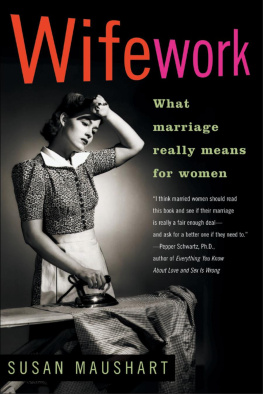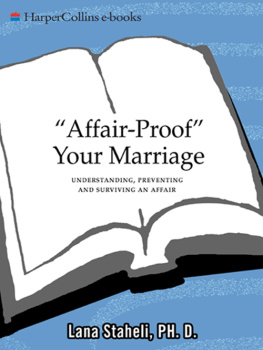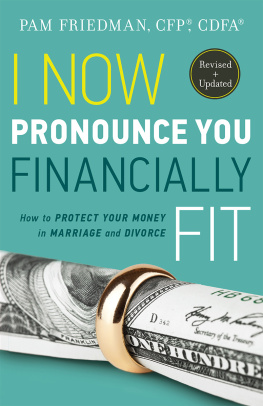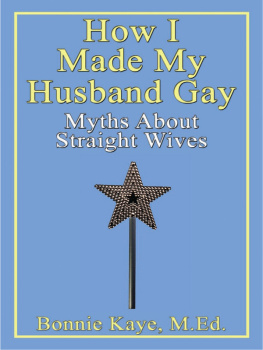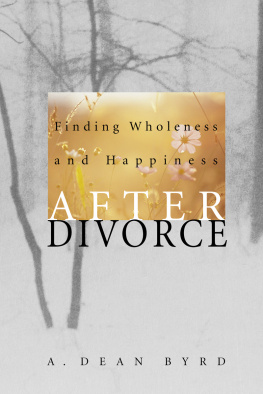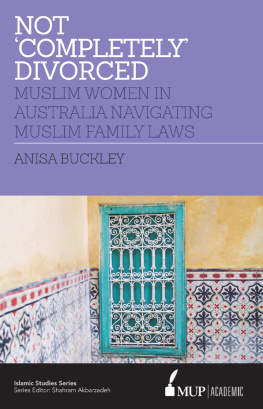F or their love and support I thank my daughter, Morgan, and son, Luke, who had to live with this project; my father and mother, Ed and June Applewhite, who were always interested; Bob Stein, for ideology checks, umbrage, and unwavering confidence; my sister Maria and brothers Jarratt and Anthony, for bearing with me through the divorce and beyond; and Ruth, Bill, Katie, Murphy, and Patty Stein, for encouragement and forgiving me for working through the weekends.
My greatest debt is to Nancy Peske, without whose editorial insight and energy this book would have been longer, later, and nowhere near as good.
For early readings, I thank Andrew Frothingham, Clyde Taylor, Margie Allen, Rachel Patron, and Brian Drolet; for professional guidance generously tendered, I thank Pam Dorman, Stuart Krichevsky, Dawn Drzal, Victoria Segunda, Terry Karten, Kera Bolonik, and Flip Brophy; for expert readings I thank Don Schuck and Martha Beuerle. I also thank Kathleen Drolet for that morale-boosting telephone message; Amity Janow for sending me Congreve; Lynn Decker for the Word tutorials and clippings; Lindy Hess for confidence sight unseen; Lisa Pedicini for the champagne and Post-it; and Charlotte Kreutz for those spring phone calls.
I n the fall of 1992, after ten years of marriage, I sued for divorce. It was an agonizing decision. My parents were pushing fifty years together. None of my sixteen cousins had divorced; the only family renegade was my notoriously belligerent great-grandmother Frida, who booted hapless William out of her Central Park West apartment in 1917. When I married, on a beautiful May afternoon in Washington, D.C., I was positive it would be forever.
We were very lucky in many ways. Just before getting married I had written a book that became a best-seller, and when it turned into a series my husband quit his job in sales promotion to go into business with me. With the proceeds we bought a nice apartment in Manhattan and for a long time had no money worries. Our daughter was born in 1985 and our son in 1987, and they are delicious children. I had the luxury of spending as much time with them as I wanted to, and for a long time was busy with babies and books.
I was the breadwinner, the mom, and a more productive and ambitious person than my ex-husband. Unfortunately, he was both deeply insecure and extremely competitive. To compensate I tried in any number of ways to make myself small, as I came to think of itnot because he demanded it but because it conformed to some inarticulate notion of mine of how wives should behave.
It took years to acknowledge the depths of my anger and resentment and depression. Therapy helped. Gradually my eyes opened to this diminished version of myself, tiptoeing around a man who couldnt even afford to like me. Only bit by bit did I realize how much of myself I had voluntarily signed away in the service of some abstract, vaguely romanticized ideal that had nothing to do with my best interests, or even those of the marriage. My sisters husband was dying that winter, and as I wept for him I eventually realized I was mourning the death of my marriage as well. Not long after our tenth anniversary, my husband moved out for a trial separation. When he announced that he was moving back in, I knew that our problems had not been and could not be solved, and said I wanted a divorce.
Early on in the process, a chance comment by my lawyer set me to thinking. Most of my clients are people like you, he said, wives who realize they dont have to stay in unhappy marriages. I was intrigued. I had headed into my divorce with the vague but distinct impression that it left women financially devastated and socially shipwrecked. Plentiful articles in the popular press made it clear that the chances of a woman over thirty finding a new mate only slightly beat the odds of getting struck by lightning, while ex-husbands chose successors from a shelf of trophy wives. Well-publicized figures showed a divorced mans income soaring while his ex-wifes took a nosedive, and until I read Susan Faludis Backlash , I believed them.
If this was indeed what lay ahead, how come wives have always sought divorce in greater numbers than their spouses, two to one at the turn of the century, almost three out of four (71 percent) in 1928, and 75 percent in the 1990s? Had my predecessors, like me, believed this grim prognosis but decided to take their chances anyway? Could it be that the consequences werent actually all that dire? I resolved to find outas soon as the wrenching logistics of my divorce had been worked out. It took a relatively speedy seven months, an eon to me, and cost me $11,000.
Our property was divided fifty-fifty, as are the childrens expenses. They spend three nights a week in the apartment my ex-husband moved into two blocks away. Though the children clearly miss the four of us being together, they are thriving. If Id been willing to haggle longer or go to court, I probably could have gotten a better financial deal, but Id do it again tomorrow. I know something precious has been lost, but also that much of what I mourn was illusory. I used to torture myself with a mental Polaroid, ripped in half, of the four of us at Yellowstone Park. It took me quite a while to admit that I never could have gotten my ex-husband anywhere near that hypothetical Winnebago, and that the perfect family my children will always yearn for never did exist. They are better off now, and so, by far, am I.
Although my expenses are higher, my standard of living hasnt changed because I began taking professional risks that have paid off. Im deeply involved with a wonderful man who delights in my competence and understands why remarriage holds little appeal. Best of all, I feel great: in full possession of myself, responsible, sexy, independent, and powerful.
Society doesnt look kindly on this sort of transition. The idea of a woman opting to be husbandless is profoundly threatening. My family was terrifically supportive during my divorce, but not long afterward my fierce and wonderful godmother declared me to be the most selfish person shed ever known. Why? Because I was ambitious. I had never lost sight of my professional goals, even now, as the unmarried mother of two young children. When I accused my mother of tarring me with the same brush, she protested, I never called you selfish. I said self-centered . Along with annoyance that a man would never have to fend off such an accusation came the exhilarating realization that this pronouncement no longer wounded me. I had indeed learned to look after my own needs. I wasnt self-centered, I was centered, and it had taken a divorce to get me there.
Marriages are mysterious. Many please and fulfill their partners, and many of the women in this book are very happy in second marriages in which they are more equal partners. The crux of the problem is that maintaining such a marriage in a world that values womens experience less than mens is enormously difficult. Are you sure most people see marriage as a partnership between equals? a friend asked flatly. His question is a good one. Lots of peoplelike the man who advertised in the Parade Sunday supplement for an old-fashioned wife, and the woman who responded and in due course promised to love, honor, and obey himdont aspire to any such thing. I hope they live happily ever after, but in our rapidly changing society its not going to be easy.


